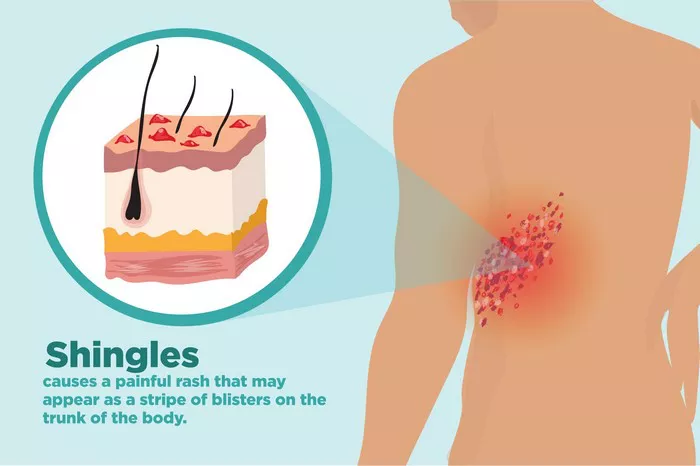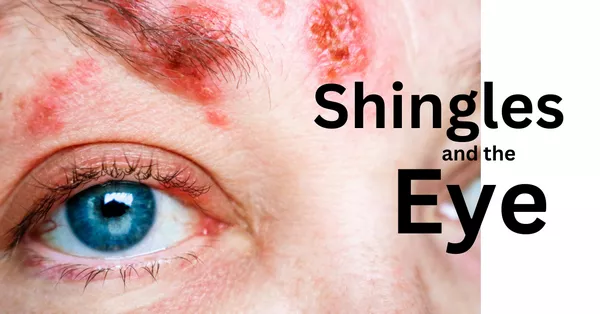Shingles, medically known as herpes zoster, is a viral infection that causes a painful rash. While many are familiar with the classic presentation of shingles, disseminated shingles is a more severe and widespread form of the condition. This article delves into what disseminated shingles entails, its causes, symptoms, complications, and the available treatment options.
What is Disseminated Shingles?
Disseminated shingles occurs when the shingles virus, varicella-zoster virus (VZV), spreads beyond the initial localized area to involve multiple parts of the body. Unlike typical shingles, which is usually confined to one side of the body and follows the path of a single nerve, disseminated shingles can affect numerous areas, appearing on both sides of the body and potentially impacting internal organs.
Causes of Disseminated Shingles
Disseminated shingles primarily results from a reactivation of the varicella-zoster virus in individuals with compromised immune systems. The virus, which also causes chickenpox, remains dormant in nerve tissues after an initial infection. When the immune system is weakened due to various factors, the virus can reactivate and spread more extensively. The key causes include:
1. Immunosuppression: Conditions like HIV/AIDS, cancer, or organ transplants necessitate treatments that suppress the immune system, increasing the risk of disseminated shingles.
2. Aging: The immune system naturally weakens with age, making older adults more susceptible to severe forms of shingles.
3. Medications: Immunosuppressive drugs, including chemotherapy and steroids, can trigger the reactivation and dissemination of the virus.
4. Chronic Diseases: Conditions such as diabetes and chronic kidney disease can impair the immune response, facilitating the spread of the virus.
SEE ALSO: Shingles vs. Chicken Pox: Which is Worse?
Symptoms of Disseminated Shingles
The symptoms of disseminated shingles can be more severe and widespread compared to typical shingles. They include:
1. Rash and Blisters: The hallmark of shingles, the rash, can appear on multiple parts of the body. It starts as red patches that develop into fluid-filled blisters.
2. Pain: Often described as burning or throbbing, the pain can be intense and precede the rash by several days.
3. Fever and Chills: Systemic symptoms like fever, chills, and malaise are more common in disseminated shingles.
4. Headache and Fatigue: These general symptoms can accompany the rash and pain, contributing to overall discomfort.
5. Widespread Itching and Tingling: These sensations can occur before the rash appears and can affect larger areas of the skin.
Complications of Disseminated Shingles
Disseminated shingles can lead to several severe complications due to its extensive nature:
1. Postherpetic Neuralgia (PHN): A chronic pain condition that persists after the rash has healed. The risk is higher with more extensive skin involvement.
2. Secondary Infections: The open blisters can become infected with bacteria, leading to cellulitis or other skin infections.
3. Neurological Complications: If the virus affects nerves near the eyes or brain, it can cause conditions like encephalitis, meningitis, or vision loss.
4. Pneumonia: Disseminated shingles can sometimes spread to the lungs, leading to pneumonia, especially in immunocompromised individuals.
5. Dissemination to Internal Organs: In severe cases, the virus can spread to internal organs, causing hepatitis, pancreatitis, or other serious conditions.
Diagnosis of Disseminated Shingles
Diagnosing disseminated shingles involves a combination of clinical evaluation and laboratory tests:
1. Clinical Examination: A healthcare provider will assess the characteristic rash and distribution. The presence of systemic symptoms may also guide the diagnosis.
2. Viral Cultures: Samples from the blisters can be cultured to confirm the presence of the varicella-zoster virus.
3. Polymerase Chain Reaction (PCR): PCR tests can detect VZV DNA in blood, cerebrospinal fluid, or blister fluid, providing a definitive diagnosis.
4. Blood Tests: Blood tests can help assess the immune status and look for signs of systemic infection or complications.
SEE ALSO: What Not to Eat with Shingles Virus
Treatment of Disseminated Shingles
Treatment of disseminated shingles aims to reduce the severity of symptoms, shorten the duration of the outbreak, and prevent complications. The primary treatment modalities include:
1. Antiviral Medications: Early administration of antiviral drugs like acyclovir, valacyclovir, or famciclovir is crucial. These medications can reduce the severity and duration of the rash and pain.
2. Pain Management: Pain control is a critical component of treatment. Options include over-the-counter pain relievers (like acetaminophen or ibuprofen), prescription pain medications, and nerve block procedures.
3. Corticosteroids: In some cases, corticosteroids may be prescribed to reduce inflammation and pain, particularly in severe cases or when nerves are involved.
4. Topical Treatments: Calamine lotion, cool compresses, and antiviral creams can help soothe the rash and reduce itching.
5. Hospitalization: Severe cases, especially in immunocompromised individuals, may require hospitalization for intravenous antiviral therapy and close monitoring.
Preventing Disseminated Shingles
Prevention strategies are essential, especially for those at high risk. Key preventive measures include:
- Vaccination: The shingles vaccine (Shingrix) is highly effective in preventing shingles and its complications. It is recommended for adults over 50 and those with weakened immune systems.
- Healthy Lifestyle: Maintaining a healthy lifestyle with a balanced diet, regular exercise, and adequate sleep can support the immune system.
- Monitoring and Management of Chronic Conditions: Proper management of chronic diseases like diabetes and HIV can reduce the risk of reactivation of the virus.
- Avoiding Triggers: Stress and other triggers that can weaken the immune system should be managed to lower the risk of an outbreak.
Living with Disseminated Shingles
Living with disseminated shingles can be challenging, but there are strategies to manage the condition and improve quality of life:
- Follow Medical Advice: Adhering to prescribed treatments and attending regular follow-ups with healthcare providers is crucial.
- Pain Management: Chronic pain can be debilitating. Seeking help from pain specialists and exploring various pain management techniques can be beneficial.
- Support Networks: Joining support groups for individuals with shingles or chronic pain conditions can provide emotional support and practical advice.
- Mental Health: Coping with a severe illness can take a toll on mental health. Seeking counseling or therapy can help address anxiety, depression, or stress related to the condition.
Conclusion
Disseminated shingles is a severe form of shingles that requires prompt medical attention and comprehensive management. Understanding its causes, symptoms, complications, and treatments can help individuals and healthcare providers better manage this condition. With advancements in medical treatments and preventive measures like vaccination, the burden of disseminated shingles can be significantly reduced, improving outcomes for those affected.
Related Topics:

























